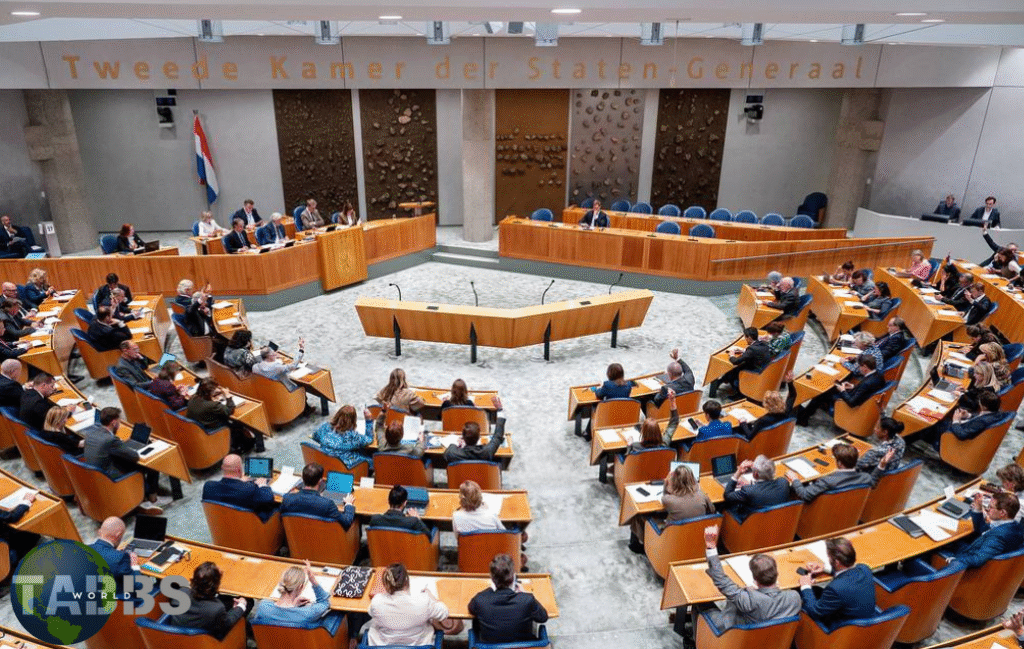When Americans choose their next president, the contest is always closely watched around the world.There are countless ways that states foreign policy – and the actions of the White House – affect different parts of the world.America’s influence abroad is certain to play a role in Thursday’s first debate between Joe Biden and Donald Trump.

But it is not just in Ukraine, Israel and Gaza that this choice matters.
Eight of the BBC’s foreign correspondents explain why this election rematch is stirring where they are.
Russians will keep a close eye on instability
Imagine you are Vladimir Putin. Who would you prefer in the White House?
The man who called you a “murderer” and vowed to stand with Ukraine? (This is Joe Biden).
Or the candidate who has criticized US military aid to Kiev and said he would encourage Russia to “do whatever it wants” with any NATO member country that doesn’t meet defense spending guidelines. Coming down (a certain Donald Trump).
Always keen to surprise, the Kremlin leader has gone on record saying that he would actually prefer Joe Biden to keep his job because of his “prediction.”
Such public endorsements, though, should be taken with a large pinch of Russian salt. Moscow will likely see the election of a NATO-skeptic, Ukraine-skeptic US president as three lemons for Russia on the geopolitical fruit machine.
Not that payment is guaranteed for Moscow. The Kremlin was disappointed by Trump’s first presidency. In 2016, a Russian official asked me to celebrate Mr. Trump’s victory with a cigar and a bottle of champagne. But the champagne went flat. Russian officials hoped for an improvement in Russia-US relations – which never materialized. Who’s to say that a second Trump presidency won’t leave Moscow vulnerable to similar feelings of inferiority?
Whoever wins the race for the White House, Russian officials will be watching closely for signs of political instability and polarization in the U.S. after the election and looking for ways to take advantage.
The biggest differences are over Taiwan
Laura Baker, China Correspondent, Beijing
Both candidates want to get tough on Beijing and have similar economic policies to counter China’s rise, including raising tariffs on cheap Chinese goods.
But their approach to dealing with China’s regional influence is very different.
Biden has strengthened ties there, hoping a united front would send a clear message to an increasingly aggressive Beijing.
But when president, Trump focused less on being a politician and more on being the “best deal.” He threatened to withdraw US troops from South Korea if Seoul did not pay more money to Washington. The biggest difference between the two is on Taiwan.
On several occasions, Biden has reiterated his pledge to come to the defense of the sovereign island if President Xi follows through on his promise to reunite Taiwan with the mainland by force if necessary.
But Trump has accused Taiwan of harming US businesses and has opposed a US bill to send aid there. This led some to question whether they would be willing to help Taipei if needed.
When the US votes, China is unlikely to be the favorite in the fight.
In Beijing’s view, an unpredictable Trump could weaken and divide US allies in the region – but could also trigger another trade war.
They also won’t be too keen on four more years of Biden. He believes that his alliance building has the potential to create a new Cold War.
Ukrainians are spectators in high-profile polls
By Gordon Corra, Security Correspondent, Kiev
There is perhaps no country for which the US election is more important than Ukraine.
Everyone knows that US support in the form of money and weapons has been crucial to sustaining Ukraine’s war effort. Few believe that Europe can step into either vacuum quickly or easily.
But here in Kiev, most people are less focused than you might expect on the campaign itself and on the results.
That’s because, as one person told me, November feels so far away. There are more troubling concerns after being hit by Russian glide-bomb attacks and Ukrainian forces fighting to hold back Russian advances.
He is very aware of what is being said about Ukraine during the election campaign. When it comes to Donald Trump, analysts here know that he has talked about ending the war and talking about cutting aid.
While some fear he could force Ukraine into a deal it doesn’t like, experts warn that what matters is what someone does in office, not what they do on the campaign trail or in debates. What do I say?
That’s because, as one person told me, November feels so far away. There are more troubling concerns after being hit by Russian glide-bomb attacks and Ukrainian forces fighting to hold back Russian advances.
He is very aware of what is being said about Ukraine during the election campaign. When it comes to Donald Trump, analysts here know that he has talked about ending the war and talking about cutting aid.
While some fear he could force Ukraine into a deal it doesn’t like, experts warn that what matters is what someone does in office, not what they do on the campaign trail or in debates. What do I say?
And there’s an understanding that even a Joe Biden victory won’t stop the challenges, given how long it took for Congress to pass the last aid package.
So the stakes are high for Ukraine but it remains a spectacle, and the unpredictability is something that Ukrainians have long learned to live with.
More uncertainty America
Policymakers in the UK tell me they are watching the US election with some trepidation.
On one level, there is nervousness about possible decisions that could affect the UK.
Will President Trump’s return to the White House weaken US military support for Ukraine and comfort Vladimir Putin?
Will he pick another fight with Europe over the NATO military alliance? Will he start a trade war with China?
Will a second-term President Biden increase American isolationism and protectionism? Will he be physically ready for the role for another four years?
On another level, there is a broader concern. There are fears in Britain that a close result on November 5, which many American voters did not recognize as legitimate, could lead to political violence, worse than the storm in the Capitol in January 2021.
A crisis in American democracy could undermine American global leadership and embolden dictators around the world.
All of this is worrying politicians from both of Britain’s major parties as they prepare for their respective elections on July 4.
Will they ever have to choose between supporting democratic values and staying close to a traditional ally? Will they have to choose between America and Europe on a major issue?
Above all, the US election presents the UK with further uncertainty in an increasingly uncertain world.



